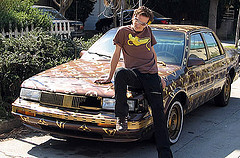Berkman Buzz: April 13, 2012
The Berkman Buzz is selected weekly from the posts of Berkman Center people and projects. Louis Vuitton v. Hyundai and trademark use disputeFrom Andrew Sellar's post in Citizen Media Law Blog, "Louis Vuitton v. Hyundai: Deconstruction of a Bad Trademark Decision " New bill recruits SOPA's largest foesFrom Qichen Zhang's blog post for the OpenNet Initiative," Big Internet Companies Back CISPA"
New Giving has some of the same problems of older philanthropy
From David Weinberger's post on Joho, "When Philanthropy Gets Personal" About David | @dweinberger
Benjamin Mako Hill interviewed by The SetupFrom the The Setup's blog post, "A Interview with Benjamin Mako Hill"
Radio Berkman: University 2.0From Radio Berkman, "RB 197: University 2.0"
When Infringement Hits HomeFrom Erin McKeown's blog post for TechDirt, "A Perspective On The Complexities Of Copyright And Creativity From A Victim Of Infringement " | ||||||||||
This Buzz was compiled by Rebekah Heacock, Rowan Curran, and Amar Ashar. To manage your subscription preferences, please click here. | ||||||||||
The Berkman Center for Internet & Society at Harvard University was founded to explore cyberspace, share in its study, and help pioneer its development. For more information, visit http://cyber.harvard.edu.  |







